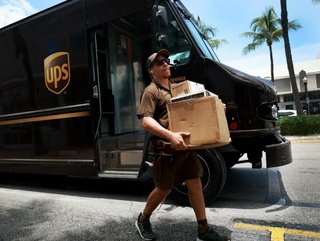UPS report: ecommerce 'is shaping the future of logistics'

A report from global shipping and logistics service UPS lays bare the astonishing rise of ecommerce in the past two years, and how this is shaping the future of logistics.
The report shows that shipping volumes driven by ecommerce have risen by 30% over the past two years – and that because of this the shipping and logistics sectors "are at a critical junction”.
‘Revolutionising eCommerce’ is published by UPS Capital (UPSC), the financial services division of UPS, designed to give businesses access to logistics capital.
Looking ahead, the report says online shopping is likely to grow by more than 10% annually in the coming three years.
Virtually every single one of the 500 retailers surveyed (99%) report an increase in shipping volume over the past two years, while 48% of the 1,000 consumers surveyed said they plan to increase online shopping in 2024.
The continuing rise of ecommerce is changing retail business models, giving rise to the so-called ‘omni supply chain’. This is a system of manufacturing and logistics in which physical and digital channels are embedded in order to meet customer demand.
UPS: fufilment a challenge in omni supply chains
UPSC says this increase is posing logistics problems, including capacity limitations and bottlenecks. Fulfilment speed challenges (54%) and management of spikes during peak periods (48%) are cited as key concerns
In terms of the technology driving ecommerce, 77% of companies say AI-enabled technology is playing some part in omni supply chain and shipping operations.
Respondents also expect AI-driven solutions to reshape the shipping industry by: enhancing efficiency (67%); reducing human error (58%); and improving inventory management in warehouses (44%).
In terms of what consumers look for from omni supply chains, a reliable and convenient returns services figures large. Almost two-third (60%) of surveyed merchants say a tenth of orders end up being returned.
But while 92% of merchants say they have confidence in their returns logistics, 33% also report inventory management challenges in the processing of returns.
Retailers see data analytics and automation as solutions to many of the challenges posed by returns.
Inventory 'can be omnichannel competitive advantage'
The inventory challenges posed by the omnichannel delivery model are well documented.
Miguel Duarte, a Consumer Health Leader with EY, told Supply Chain Digital that retailers are still grappling with ways to use inventory management as a means to gain a competitive advantage in the omnichannel space.
“Retailers have always used the past as the best explanation of the future,” says Duarte. “They project demand and supply based on existing, limited and aggregated data.”
But now, he says, retailers increasingly have to predict buying patterns based on data that includes behavioural factors – factors such as the importance to consumers of flawless return logistics systems.
Understanding such behavioural preferences, he says, “will deliver a detailed understanding of what’s the best product, inventory level and location and channel, at the right time for the right consumer”.
He adds that it “will change the inventory accuracy discussion in a dramatic way”.
******
Check out the latest edition of Supply Chain Digital and also sign up to our global conference series: Procurement & Supply Chain 2024. Supply Chain Digital is a BizClik brand.






